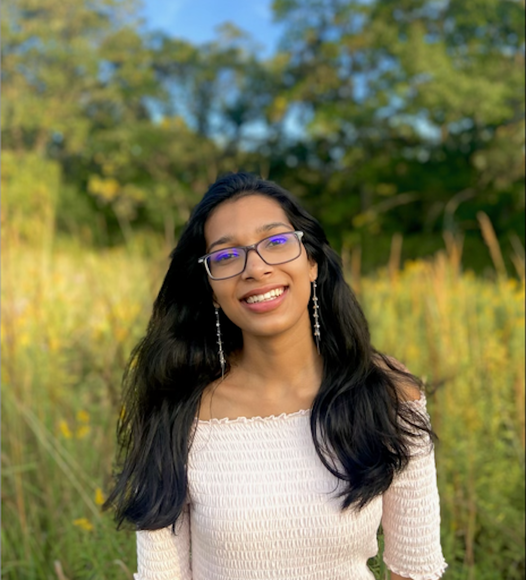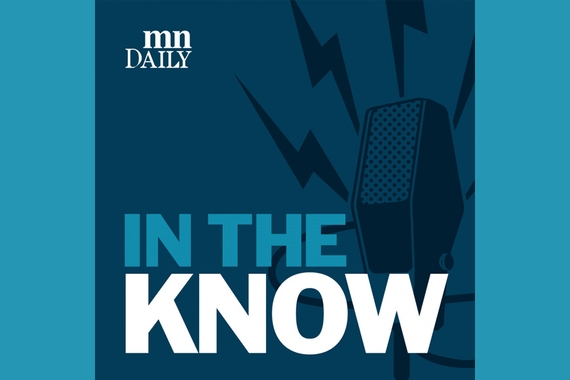2023 Fraser Fellow Gains a Wider Understanding of Human Rights Advocacy and Processes during Summer Internship
In 2018, the Human Rights Program established the Fraser Fellowships to support summer field experience in human rights organizations for undergraduate students at the University of Minnesota. Named after the late congressman and Minneapolis mayor Donald Fraser and his wife Arvonne Fraser, the fellowships honor the contributions the two made to human rights in the Twin Cities and beyond.
Each spring, applications are made available for the paid, 10-week positions to all University of Minnesota undergraduates, with recipients announced in late April. This year’s Fraser fellow, sophomore Shubhangi Mohan, was placed with the International Justice Program at The Advocates for Human Rights.
The Human Rights Program interviewed Mohan about her experience following the end of her placement in August.

Human Rights Program (HRP): What are you studying at the University of Minnesota and what do you hope to pursue as a career? How did either your studies or your future career path lead you to apply for the Fraser Fellowship?
Shubhangi Mohan (SM): I am double majoring in global studies and genetics, cell biology & development. Coming out of high school, I was interested in healthcare accessibility and immunology as well as human rights and the law. To be completely candid, I am not 100% sure what my future will look like, but it will be an intersection of both healthcare and the law. In a perfect world, I would be working to make healthcare more accessible to people in different regions of the world and substantialize healthcare access as a human right.
My interest in global studies, and more specifically in human rights, led me to apply to the Fraser Fellowship. I first heard about the scholarship in my global studies class: Global Modernity, the Nation-State, and Capitalism. Immediately I was intrigued.
I had previously heard about the Advocates for Human Rights in the context of their WATCH program. The Fraser Fellowship worked with a different department: International Justice. International Justice worked to compile information about the status of various issues in different nations and provide this information to the United Nations. Immediately I was obsessed. This was human rights at an international level. On a large scale, this was exactly what I wanted exposure to. As I learned more about the work the Advocates’ did, I knew that this was the perfect stepping stone toward my future career.
HRP: What was your role when working with the Advocates? Please describe some of the major tasks you completed and how they helped build your skills.
SM: My biggest role while working with the Advocates’ was the research behind, and the preparation of reports that were going to be submitted to the United Nations. For various topics, I compiled research, looking for developments since the previous UPR (Universal Periodic Review). Through this process, my ability to find and summarize credible sources has greatly improved. Additionally, the importance of consistency in the submission was highlighted and is something that I have since improved upon. I also worked to prepare the oral statements that the Advocates would make at the United Nations. The importance of concise language and culturally neutral language was highlighted to me and was something I have been able to improve on.
HRP: How will your experience interning for the Advocates strengthen your passion for human rights and how might it complement your academic endeavors?
SM: My time at the Advocates illustrated the complexity of the process behind human rights advocacy and education. There is so much that needs to happen for states to be held accountable from journalists and organizations going to the nation and finding and investigating events that the states try to hide, to the creation of a report to submit to the United Nations which will take the report into consideration. Every individual role in this process is vital to the mechanism, and the lack of any would have it collapse. The awareness of this—accountability in regards to human rights needs more people consistently working for it—‚has further strengthened my passion to continue working in the field.
Furthermore, the environment of the committed, supportive, and kind community that was present at the Advocates is exactly what I hope for my future. This will complement my further academic endeavors through the skills and the passions I have attained working with them. I am better prepared for all research experiences and all persuasive reports as a result of this internship.
HRP: What advice do you have for students seeking field experience in human rights?
SM: I would recommend they start by finding an area of interest in regards to the kind of work they would like to do. Human rights is such a vast area that is a compilation of a diverse amount of work, and at times can be mentally and emotionally draining. As such, one doesn’t need to be confined by a “conventional” path into the field and should make sure that the work they do is sustainable in their lives. Regardless of whether you are interested in research or journalism, it can all be applied to human rights advocacy.
Once you have found that passion, look for experiences in human rights that are tied to that passion. That might be in an organization like the Advocates or it might be with something completely different. There is no box you have to fit into to get into this field. All you really need is a passion in the field.


